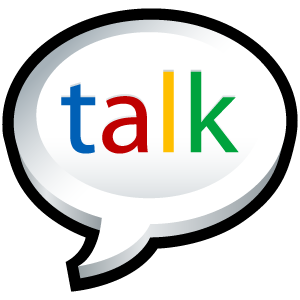 To help prepare a successful speech or presentation, use the 5 P’s as a guideline. Before beginning, consider the purpose for the speech or presentation. Find your passion for the subject. The “P” for preparation doesn’t just involve preparing for your speech, it includes doing homework about the audience. Without this preparation, the other 4 P’s will not have the intended results. Be sure to practice by running through the presentation until you are comfortable. Your performance and familiarity with the subject will be key as to how your speech is received. Keeping the 5 P’s in mind will help to ensure success.
To help prepare a successful speech or presentation, use the 5 P’s as a guideline. Before beginning, consider the purpose for the speech or presentation. Find your passion for the subject. The “P” for preparation doesn’t just involve preparing for your speech, it includes doing homework about the audience. Without this preparation, the other 4 P’s will not have the intended results. Be sure to practice by running through the presentation until you are comfortable. Your performance and familiarity with the subject will be key as to how your speech is received. Keeping the 5 P’s in mind will help to ensure success.
Posted on 22 July 2020 Comments (0)
Tags: Brand Impact, Career Builders, Coaching, communication, Confidence, Confidence Builders, Critical Thinking, Culture, Emtional Intelligence, Go to Meeting Presence, Interpersonal skills, Leadership, Leadership Presence, Listening, Presentation Skills, Speaking Skills, Zoom
 Meeting on Zoom, GoToMeeting, or WebEx is difficult. Long meetings are especially challenging. Be sure to set up early for the meeting, having the items you need available. Put away any distractions, such as a cell phone or additional paperwork (no multi-tasking). Keeping engaged will help you connect with those in the meeting. Facial expressions are the best way to ensure a personal connection (smiling and making eye contact directly into the screen). Watch for cues to ensure your message is being heard. Always use mute when you are not talking. Be open to dialogue on Zoom and engage in discussions.
Meeting on Zoom, GoToMeeting, or WebEx is difficult. Long meetings are especially challenging. Be sure to set up early for the meeting, having the items you need available. Put away any distractions, such as a cell phone or additional paperwork (no multi-tasking). Keeping engaged will help you connect with those in the meeting. Facial expressions are the best way to ensure a personal connection (smiling and making eye contact directly into the screen). Watch for cues to ensure your message is being heard. Always use mute when you are not talking. Be open to dialogue on Zoom and engage in discussions.
 Toastmasters is an organization that can help improve speaking skills. They offer templates to craft many different types of presentations or messages to be delivered. One of them is how to deliver a thank you speech after winning an award. Acknowledging those who ensured success is important. An acceptance speech is not a forum to air grievances or promote matters that are unrelated to the award. Instead, adding a succinct anecdote about the journey on the path to success is meaningful and appropriate.
Toastmasters is an organization that can help improve speaking skills. They offer templates to craft many different types of presentations or messages to be delivered. One of them is how to deliver a thank you speech after winning an award. Acknowledging those who ensured success is important. An acceptance speech is not a forum to air grievances or promote matters that are unrelated to the award. Instead, adding a succinct anecdote about the journey on the path to success is meaningful and appropriate.
 Roger Love, the number one singing and speech coach for celebrities, recommends speaking in full sentences to help prevent the “ums” and “aws”. Pauses are a great tool to use to prevent filler words and ramblings. Engaging the audience will also help bring focus to the conversation and help pace speech. Racing to talk causes filler words. It is best to think before you speak, use a pause, or just say “give me a moment to gather my thoughts”. Strong statements build confidence with the audience. Avoid beginning sentences with the words “I think.” Instead, use the end results as a beginning. For example, instead of saying “I think we should use . . . “ say “We should use . . . “ Keeping these communication tips in mind will help build confidence for you and for the audience.
Roger Love, the number one singing and speech coach for celebrities, recommends speaking in full sentences to help prevent the “ums” and “aws”. Pauses are a great tool to use to prevent filler words and ramblings. Engaging the audience will also help bring focus to the conversation and help pace speech. Racing to talk causes filler words. It is best to think before you speak, use a pause, or just say “give me a moment to gather my thoughts”. Strong statements build confidence with the audience. Avoid beginning sentences with the words “I think.” Instead, use the end results as a beginning. For example, instead of saying “I think we should use . . . “ say “We should use . . . “ Keeping these communication tips in mind will help build confidence for you and for the audience.
 Recently I attended a family function celebration. When some family members were asked to speak, they did not know what to say about the guests of honor. Always be ready to speak at a moment’s notice. Start by either talking about the reason for the event’s occasion (ex. today my parents are celebrating a milestone anniversary) or tell a story that ties into the celebration (ex. we were just looking at their wedding photos together). Wrap up your brief talk with a sentence related to moving forward after the occasion (ex. they have had many beautiful years of marriage, may they have many more ahead of them). Talking for less than a minute is too short; anything more than a minute and a half too long.
Recently I attended a family function celebration. When some family members were asked to speak, they did not know what to say about the guests of honor. Always be ready to speak at a moment’s notice. Start by either talking about the reason for the event’s occasion (ex. today my parents are celebrating a milestone anniversary) or tell a story that ties into the celebration (ex. we were just looking at their wedding photos together). Wrap up your brief talk with a sentence related to moving forward after the occasion (ex. they have had many beautiful years of marriage, may they have many more ahead of them). Talking for less than a minute is too short; anything more than a minute and a half too long.
 Impromptu speaking can create more impact in meetings and when presenting to a group because in these situations, folks can see your confidence and composure in action. Toastmasters use a wonderful segment in each meeting called table topics. Someone selects a topic and calls another member up to talk about it for two minutes.
Impromptu speaking can create more impact in meetings and when presenting to a group because in these situations, folks can see your confidence and composure in action. Toastmasters use a wonderful segment in each meeting called table topics. Someone selects a topic and calls another member up to talk about it for two minutes.
I also found that very often, clients have to answer questions and instead being caught off guard, they responded calmly.
These are a few tips to help answer with confidence when caught in an impromptu situation:
• Take your time to answer
• Repeat the question
• Or rephrase the question
• Offer another way to answer the question
 In a recent brewing scandal involving a major sports organization, the president of the group made a statement about it. What impressed me about this is that the president refrained from the usual allegation denial. Instead, he expressed concern while stating the incident was under investigation and would be addressed after the findings were revealed.
In a recent brewing scandal involving a major sports organization, the president of the group made a statement about it. What impressed me about this is that the president refrained from the usual allegation denial. Instead, he expressed concern while stating the incident was under investigation and would be addressed after the findings were revealed.
It was genuinely felt that the organization would be honest with the findings. Delivering difficult news must be heartfelt and honest. This approach was much better than not speaking about the situation or worse, defending it before all the facts were in.
 Good moderators do their homework. First, they know the discussion contents. They know the panelists from interviewing them before the actual event. They have prepared an introduction of each of the them.
Good moderators do their homework. First, they know the discussion contents. They know the panelists from interviewing them before the actual event. They have prepared an introduction of each of the them.
The time allotment for each answer is discussed with each panelist prior to the event. The moderator has the authority to monitor the time. Successful moderators create a safe environment for the panelists and simultaneously satisfy the audience that the promised content has been delivered.
 At a recent event, a client was the last person to accept an award. Unfortunately, the other award winners were funny and seemed to have either practiced their acceptance speeches or were adept at adjusting to statements by earlier award winners.
At a recent event, a client was the last person to accept an award. Unfortunately, the other award winners were funny and seemed to have either practiced their acceptance speeches or were adept at adjusting to statements by earlier award winners.
If I had been hired to coach the client on speaking in public especially when accepting an award, I would have mentioned the following critical elements for a winning acceptance speech:
1. Remember, 30 to 60 seconds is the shortest length of time and 90 seconds to two minutes the longest when accepting an award.
2. Differentiate yourself with your own personal story to tie into the thank you.
3. Be generous with crediting the folks who helped you win the award.
4. Inject a bit of humor. It goes a long way.
5. Practice in front a sounding board.
Following these guidelines will give you an 80% chance to give a memorable acceptance speech.
 Often, folks presenting start with the details and eventually get to the point. However, presenters who begin with the end in mind and then wait for a reaction from the audience can discuss the supporting points based on that audience response, tend to deliver a more impactful message. They show their audience respect and allow them to ask better informed questions.
Often, folks presenting start with the details and eventually get to the point. However, presenters who begin with the end in mind and then wait for a reaction from the audience can discuss the supporting points based on that audience response, tend to deliver a more impactful message. They show their audience respect and allow them to ask better informed questions.
 To help prepare a successful speech or presentation, use the 5 P’s as a guideline. Before beginning, consider the purpose for the speech or presentation. Find your passion for the subject. The “P” for preparation doesn’t just involve preparing for your speech, it includes doing homework about the audience. Without this preparation, the other 4 P’s will not have the intended results. Be sure to practice by running through the presentation until you are comfortable. Your performance and familiarity with the subject will be key as to how your speech is received. Keeping the 5 P’s in mind will help to ensure success.
To help prepare a successful speech or presentation, use the 5 P’s as a guideline. Before beginning, consider the purpose for the speech or presentation. Find your passion for the subject. The “P” for preparation doesn’t just involve preparing for your speech, it includes doing homework about the audience. Without this preparation, the other 4 P’s will not have the intended results. Be sure to practice by running through the presentation until you are comfortable. Your performance and familiarity with the subject will be key as to how your speech is received. Keeping the 5 P’s in mind will help to ensure success.

 Meeting on Zoom, GoToMeeting, or WebEx is difficult. Long meetings are especially challenging. Be sure to set up early for the meeting, having the items you need available. Put away any distractions, such as a cell phone or additional paperwork (no multi-tasking). Keeping engaged will help you connect with those in the meeting. Facial expressions are the best way to ensure a personal connection (smiling and making eye contact directly into the screen). Watch for cues to ensure your message is being heard. Always use mute when you are not talking. Be open to dialogue on Zoom and engage in discussions.
Meeting on Zoom, GoToMeeting, or WebEx is difficult. Long meetings are especially challenging. Be sure to set up early for the meeting, having the items you need available. Put away any distractions, such as a cell phone or additional paperwork (no multi-tasking). Keeping engaged will help you connect with those in the meeting. Facial expressions are the best way to ensure a personal connection (smiling and making eye contact directly into the screen). Watch for cues to ensure your message is being heard. Always use mute when you are not talking. Be open to dialogue on Zoom and engage in discussions. Toastmasters is an organization that can help improve speaking skills. They offer templates to craft many different types of presentations or messages to be delivered. One of them is how to deliver a thank you speech after winning an award. Acknowledging those who ensured success is important. An acceptance speech is not a forum to air grievances or promote matters that are unrelated to the award. Instead, adding a succinct anecdote about the journey on the path to success is meaningful and appropriate.
Toastmasters is an organization that can help improve speaking skills. They offer templates to craft many different types of presentations or messages to be delivered. One of them is how to deliver a thank you speech after winning an award. Acknowledging those who ensured success is important. An acceptance speech is not a forum to air grievances or promote matters that are unrelated to the award. Instead, adding a succinct anecdote about the journey on the path to success is meaningful and appropriate. Impromptu speaking can create more impact in meetings and when presenting to a group because in these situations, folks can see your confidence and composure in action. Toastmasters use a wonderful segment in each meeting called table topics. Someone selects a topic and calls another member up to talk about it for two minutes.
Impromptu speaking can create more impact in meetings and when presenting to a group because in these situations, folks can see your confidence and composure in action. Toastmasters use a wonderful segment in each meeting called table topics. Someone selects a topic and calls another member up to talk about it for two minutes. In a recent brewing scandal involving a major sports organization, the president of the group made a statement about it. What impressed me about this is that the president refrained from the usual allegation denial. Instead, he expressed concern while stating the incident was under investigation and would be addressed after the findings were revealed.
In a recent brewing scandal involving a major sports organization, the president of the group made a statement about it. What impressed me about this is that the president refrained from the usual allegation denial. Instead, he expressed concern while stating the incident was under investigation and would be addressed after the findings were revealed. Good moderators do their homework. First, they know the discussion contents. They know the panelists from interviewing them before the actual event. They have prepared an introduction of each of the them.
Good moderators do their homework. First, they know the discussion contents. They know the panelists from interviewing them before the actual event. They have prepared an introduction of each of the them. At a recent event, a client was the last person to accept an award. Unfortunately, the other award winners were funny and seemed to have either practiced their acceptance speeches or were adept at adjusting to statements by earlier award winners.
At a recent event, a client was the last person to accept an award. Unfortunately, the other award winners were funny and seemed to have either practiced their acceptance speeches or were adept at adjusting to statements by earlier award winners. Often, folks presenting start with the details and eventually get to the point. However, presenters who begin with the end in mind and then wait for a reaction from the audience can discuss the supporting points based on that audience response, tend to deliver a more impactful message. They show their audience respect and allow them to ask better informed questions.
Often, folks presenting start with the details and eventually get to the point. However, presenters who begin with the end in mind and then wait for a reaction from the audience can discuss the supporting points based on that audience response, tend to deliver a more impactful message. They show their audience respect and allow them to ask better informed questions.

